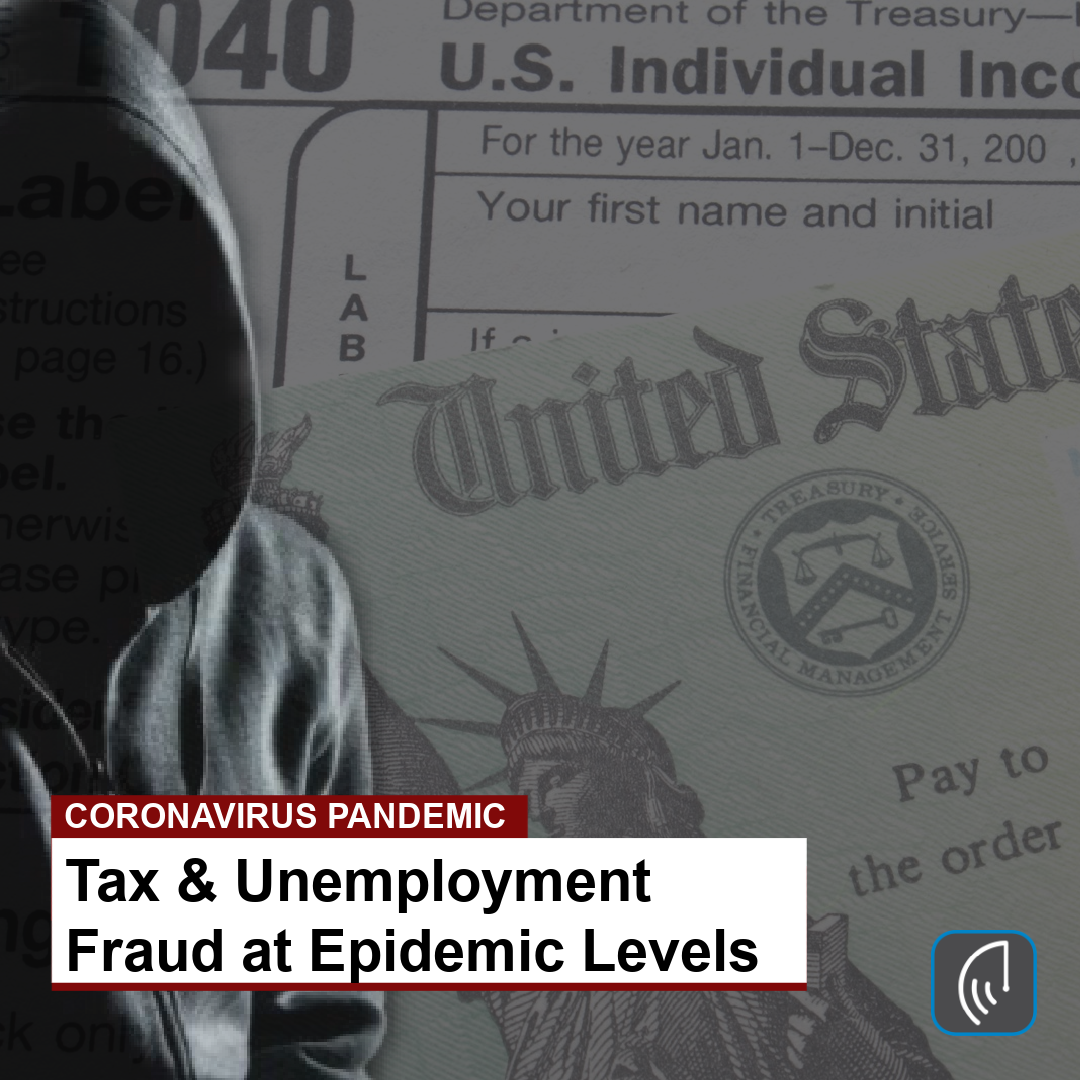The Criminal Investigation Division of the Internal Revenue Service (IRS) announced in its annual report that they “uncovered $2.3 billion in tax fraud during the 2020 fiscal year”. (IRS Releases Annual Report Identifying $2.3 Billion in Tax Fraud). These numbers put Tax and Unemployment fraud at epidemic levels!
The IRS said that its focus included Covid-19-related fraud, cybercrime, and other identity theft-related tax crimes.
Further explaining that their investigation into the Dark Web includes “terrorist financing cyber-enabled campaigns” where U.S. authorities seized millions of dollars. The IRS was able to take over 300 cryptocurrency accounts, four websites, and four Facebook pages all related to the criminal activity.
Then in January of this year, the Federal Trade Commission (FTC) released its annual identity theft and fraud report known as the “FTC Consumer Sentinel Network Data Book” (2020 FTC Consumer Sentinel Network Data Book).
The 2021 FTC report states that identity theft was once again the number one consumer complaint in the United States, with nearly twice as many identity theft victims in 2020 as there were in 2019.
The big story from this year’s FTC report is a 2,000 percent increase in government document or benefits fraud, such as unemployment insurance fraud. The Covid-19 pandemic created a windfall for individual scam artists and international cybercrime rings.
And just when we thought the news of identity theft and fraud could not be any worse, a February report was published on how “billions of dollars of unemployment aid ended up in the wrong hands. A result of fraudsters that exploited and overwhelmed state agencies” (How Fraudsters and Cyber Criminals Stole Billions of Dollars in Unemployment Aid).
While the Labor Department Inspector General is in the process of completing an investigation, estimates of at least $63 billion of unemployment aid, and possibly $100 billion of stolen taxpayer funds due to identity theft and fraud.
According to our partners at Merchants Information Solutions – Jeremy Villanueva, Manager of Customer Support Operations said that the defend-id/MIS ID Theft Restoration Center “experienced a massive increase in government documents and benefits fraud cases since the pandemic started last year.”
Villanueva stated, “the significant increase in unemployment insurance fraud is a direct result of ID theft criminals and fraudsters taking advantage of individual states willingness to quickly pay unemployment benefits without proper vetting of these claims.”
In the case of MIS, Villanueva said that “since March of 2020 when the country shut down for Covid-19 precautions, our restoration center realized a 1,600% increase over the previous year specific to unemployment insurance fraud cases.”
If you receive a 1099-G form in the mail showing benefits disbursed that you did not apply for or receive, your employer or you should take steps to make sure your personal information is secure by completing the following action items:
- If you receive a 1099-G form, contact your state unemployment benefits agency as this form does not come from the IRS.
- File an ID theft affidavit with the FTC and a local police report.
- Review your credit reports at annualcreditreport.com.
- Contact one of the reporting agencies and put a fraud alert on your account.
If you are a member or customer of defend-id services and need guidance, call 800-487-0160 to open a case with your professionally trained Recovery Advocate.
Not a member or customer yet? Visit https://www.defend-id.com/ to learn more!
by Mark Pribish
